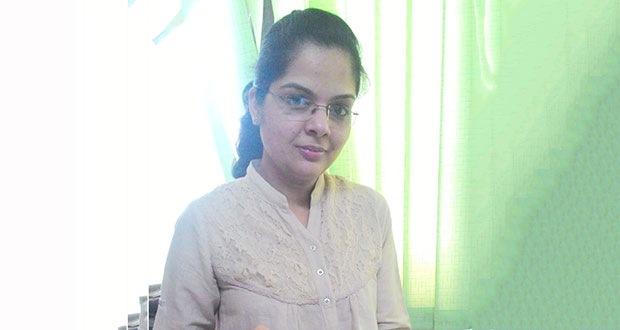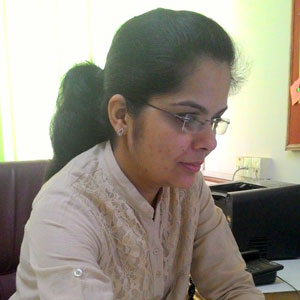Prachi Gupta graduated from Guru Gobind Singh Indraprastha University, Delhi in 2006. Soon after Graduation she started working as a Law Researcher at Delhi High Court. She has also worked as Secretary (Legal) Review Committee at Ministry Of Home Affairs. She is currently working as a Lawyer at competition commission of India. She has expertise in dealing with standard essential patents, real estate, e-commerce, mergers, wholesale and retail distribution of drugs and medicines, transportation, mining of coal and minerals and matters related to intellectual property etc.
In this interview, she talks about:
- Building a career in competition law litigation
- Working at competition commission of India
- Importance of academics, internships and moots
How would you introduce yourself? Tell us a bit about your pre-college years. When and how did you decide to study law?
I am a second generation lawyer in my family. My motivation to be a lawyer is of course, my father who has been actively practicing for the last 40 years. As a child, his black coat and gown always fascinated me. When I was in my 12th standard, Guru Gobind Singh Indraprastha University started the LL.B (H) degree, which was the first 5 year law degree program in Delhi at that time. I guess I was destined to be a lawyer.
What activities were you involved in at Law school? Looking back, is there anything you wish you had done differently?
Law school at Guru Gobind Singh Indraprastha University was a young institution at that time and apart from academics, students were encouraged to participate in different activities. I was part of teams involved in organising external moot court competitions, Lok Adalats, debates etc. to name just a few. I was also on the editorial board for the law school journal. Law school was one of the most fun yet fulfilling experiences of my life. I don’t think I could have asked for anything more.
Tell us about your internships which you undertook during your graduation?
In the legal profession, law schools teach only the theoretical part of law, everything about the procedural aspects has to be learnt on the job. So, it’s always better for a law student to start young. Internships are probably one of the most enriching experiences that a law student goes through. Besides honing researching and drafting skills, internships teach soft skills like time management and prioritising, which, I believe, hold a lot of value in our profession. I did my internships with litigating lawyers since I wanted to get acquainted with the basics and technicalities of the profession.
How was your experience working as a Law Researcher at Delhi High Court?
Working as Law Researcher at Delhi High Court was one of the biggest learning experiences for me. I was fresh out of law school then and initially the whole experience of assisting a High Court judge was a bit overwhelming. Within a few days, after I became accustomed to the way things work, I started enjoying the work assigned to me.
Please tell us about the requisite soft skills which are essential for a young lawyer to build a successful career?
I think one of the most essential personality traits for a good lawyer is ability to communicate well with everyone. For a litigation lawyer, it helps to effectively communicate with his clients and successfully present his case before the court. For an in-house counsel, getting along well with colleagues and superiors is equally necessary. Apart from excellent communication, every young lawyer should also focus on their drafting and research skills.
Please tell us a bit about your work profile at Competition Commission of India.
My work profile at the Commission involves a number of things like assisting the Commission on the informations filed, which primarily involves research and analysis of relevant markets, market trends, different players in different sectors, analysing allegations of anti-competitive conduct, studying different sectors for any probable violations, looking into litigation matters of the Commission etc. Work at the Commission is never predictable. One day, I am assigned a case with anti-trust issues in real estate and the next day, there can be a case about allegations of cartels in another sector. The fact that competition law jurisprudence is still evolving in India makes my work more challenging.
What are the primary essentials of a competition lawyer? How do you say a fresh graduate can work on building these skills?
The primary essentials of a good competition lawyer are no different than that of a good lawyer i.e. good communication skills – written and spoken. Competition Law is a relatively new law in India and the jurisprudence is still evolving. Indian competition law has adopted certain concepts from other jurisdictions. A law student who wants to pursue a career in competition law should keep himself/herself updated about the decisions of the Competition Commission of India and COMPAT. All the orders are easily available on the official website of the Commission. Developments in anti-trust law in other jurisdictions especially EU and USA will also help young lawyers to gain an in-depth understanding of the competition law.
When the Indian Competition Law regime is compared to that of the UK / USA Competition Law regime, do you think that there is a lot of headspace for progress in India?
As I already said above, competition law is a relatively new law in India and the jurisprudence is still evolving, compared to EU and USA where anti-trust laws have been in place for many decades. In USA, anti-trust law came into being in the last decade of 1800. Indian competition law is still evolving but we have the advantage of learning from other jurisdictions. Commission by its recent decisions in several strategic areas like real estate, cement, tyre, coal etc. has made it apparent it will come down heavily on disruptive trade practices. Several trade associations and industry giants already adopted elaborate competition compliance measures to ensure that their activities are in compliance of the Competition Act, 2002
Do you believe branding of college is something that’s very relevant/ important at any stage in a law student’s career?
There has been a rise of few elite law schools that focus and prepare students only for a career in top notch law firms. Every law school should focus on a robust curriculum comprising of major substantive and procedural laws. Every law student and young lawyer should have a fair idea about the laws that govern the country, especially the common man. The elite tag may help students secure placements in top law firms and MNCs but few years down the line, the kind of professional exposure and experience one has gained really matters. Law schools should not be about good placements but wholesome legal education. Besides, there is no dearth of good legal education and professors with a passion for academics are there at every law school. I was taught by some of the best teachers at law school.




























